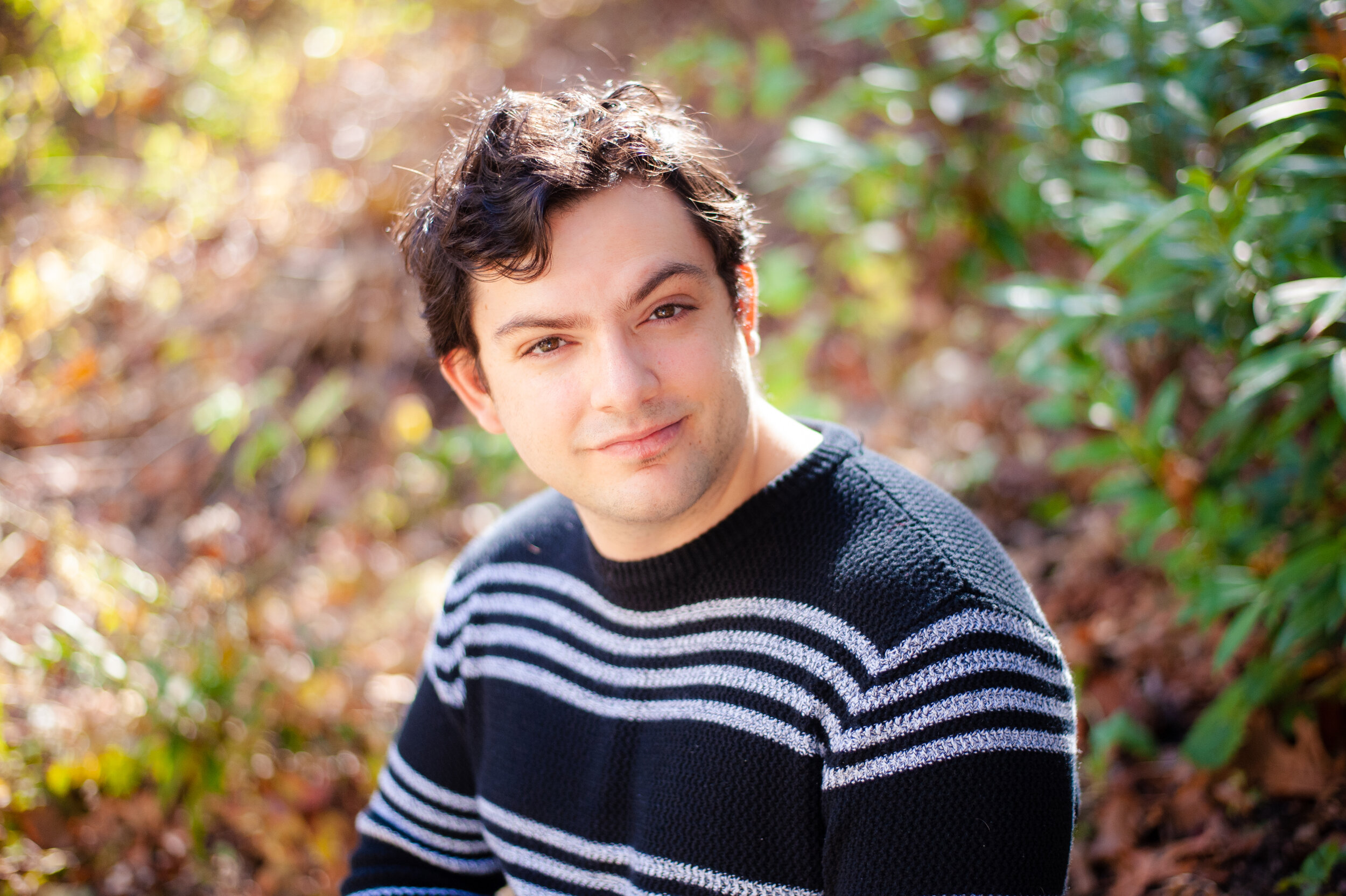Flutist Michael Avitabile, founder of Hub New Music. “We don’t have to superimpose the older narrative on our music.”
Listen to Michael Avitabile, and you’ll believe that chamber music can lead the way.
The classical music industry struggles to overcome shortcomings in inclusion, and in addressing social justice issues. It’s a longstanding concern, only somewhat overshadowed by the pandemic hiatus on live performances. Avitabile feels that his own ensemble, Hub New Music, and other small groups are better equipped to encourage those changes.
“Tackling societal issues will come from small, nimble organizations,” the Jamaica Plain resident says. “New music has the capacity to do that. The chamber music world has spearheaded that. We don’t have to superimpose the older narrative on our music. We can play, and commission pieces that are relevant. We can include every voice on a concert program.”
Hub New Music—an unusual instrumentation including Avitabile (flute), Alyssa Wang (violin), Jesse Christeson (cello) and new member Nicholas Brown (clarinet)—is still in its first decade, but has created a solid foundation. Between touring, commissioning, residencies and educational programs, HMN’s profile has grown both locally and across the country.
Multiple appearances on Boston’s Celebrity Series, at Ashmont Hill Chamber Music, and a long-term relationship with the Peabody Essex Museum highlight HMN’s regional impact.
HMN has continued to build its nation-wide audience—even if it’s not the way Avitabile planned. An extended fall tour became an extended virtual tour, with streamed concerts for presenters in Texas, Arizona, Georgia, California and elsewhere. The spring promises more of the same—a January concert for the Arizona Friends of Chamber Music, another Celebrity Series stream in March. A real-life tour to Italy in May is still on the calendar, if it’s possible.
“When it looked like the fall was going to be remote too,” Avitabile says, “we didn’t want to cancel. We wanted to keep alive what we do—in some capacity.
“The presenters have all been trusting,” he says. “They have to relinquish so much control—we do it, and deliver it to them. It’s a real testament to how strong the community is.”
HMN has recorded concerts in the Boston Athenaeum, and in Roxbury’s Hibernian Hall. “We record a unique performance for every presenter,” he says. “The four of us are podded, and we get together with extreme caution. We respect the sanctity of our Hub pod.
“We don’t like to do live livestreams,” he says. “Someone might not have the greatest internet connection, and we want to make sure the audience has a clean, high-value experience. We feel like it’s us versus Netflix. You can’t expect the audience to spend money and then give them something glitchy. So we prerecord.
“We are creating a digital touring season,” he says, “not just a lesser version of what we do live. We can’t recreate something live over a screen. This at least you can watch at any time, and that has helped us reach more people. The metrics are proving it.
“My job used to be simple,” he says. “but now we are a full-service media company. We’ve never had to do so much detailed logistical work.”
One ongoing HNM project—performances and an eventual recording of Carlos Simon’s “Requiem for the Enslaved”—is part of a broader initiative from Georgetown University’s Committee on Slavery, Memory and Reconciliation. The composer, an assistant professor there, has created a work that memorializes the 272 men, women and children sold as slaves in the early 19th century to fund the university’s growth.
“We simply present issues,” Avitabile says of the ensemble’s approach. “I don’t think that the arts make change—I think the arts make change possible. They’re a reflection of the world that we live in. We need to make sure as many voices as possible are included in the canon.
“We enjoy the music, and the collaboration,” he says, “and the community. Working with composers fuels our organization. It’s powerful, and the audience can sense that excitement, the pioneering quality.
“We would not be doing this if we didn’t value sharing art. So many groups have that conviction, and it proves how important it is.”


